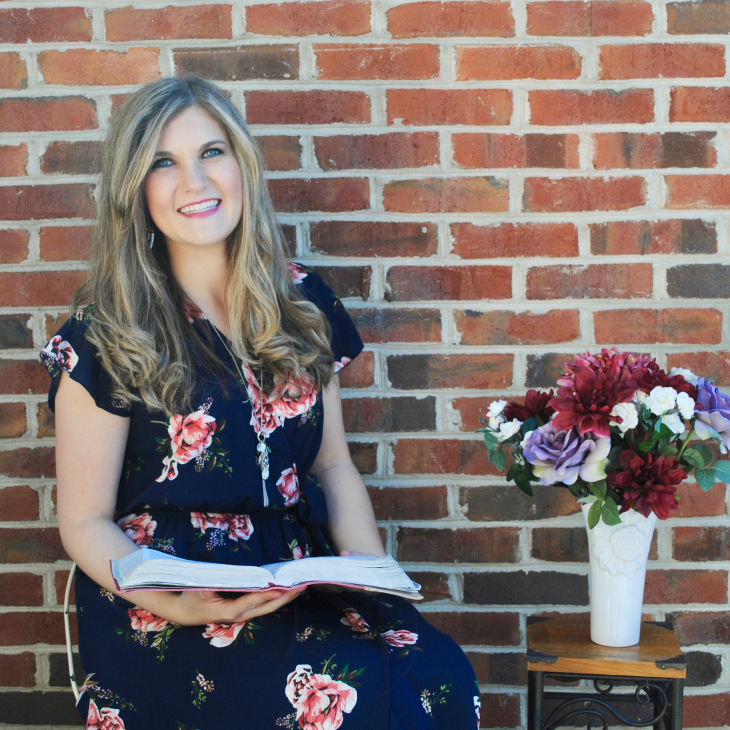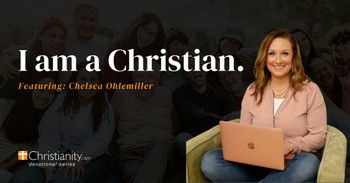
Learn to Do Good
By Emma Danzey
“Learn to do what is good. Pursue justice. Correct the oppressor. Defend the rights of the fatherless. Plead the widow’s cause. - Isaiah 1:17
As I read over Isaiah 1:17, I realized that the phrase, “Learn to do good” preceded the commands we have heard many times. The Hebrew word for learn is lamad. It appears many times in Deuteronomy, 2 Chronicles, and across the Old Testament. Sometimes it is translated to learn or teach. Why would we need to learn to do good?
The truth is that we were created very good in the Image of our Creator. However, when humanity sinned, even though our design and original purpose was very good, our sin has caused us to be not good. Romans 3:10 says, “As it is written: There is no one righteous, not even one.” This means that we have a sinful nature. Spiritually speaking, good does not come naturally to humanity. It is only by the Holy Spirit, or God’s grace upon a human life that anything good can come from their lives.
When we ponder justice, the oppressed, the fatherless, and the widow, these are not categories of people and things that we are all well-versed in helping. However, it is something that we can lamad. We learn by going to the Teacher of all things good, Jesus. He is goodness. He is perfect. We also learn by having experiences to grow in these areas in practical ways. We say yes to helping someone, we grow in our awareness of issues within our communities, and we get to know people who are different from us. Learning never comes from isolating or ignoring, but from seeking wisdom and exploring.
Pursue justice, correct the oppressor.
Many translations use the word seek. To pursue means that you are seeking out, you are determined to find. When we think about good and bad, we can often visualize a courtroom of innocent and guilty. Justice is fairness. We know good and well that this world is not just. However, Psalm 89:14 says, “Righteousness and justice are the foundation of your throne; steadfast love and faithfulness go before you.” God’s reign is founded on justice. He is good and He is fair. He does not show favoritism. (Acts 10:34)
When we encounter others, we can learn to see people made in the image of God. When we witness the suffering and the unfair treatment of others, we can seek justice for them in Jesus’ name. When others are a different race, socio-economic status, or age, we can pursue them in love like Christ. We learn to do this by getting to know people who are different from us, by paying attention to the needs of others, and by connecting with local ministries that help pursue justice.
On top of this, we do not stay silent as we encounter injustices. We correct the oppressor. Absolutely, we humble ourselves first and realize that we have planks in our eyes. Matthew 7:5 says, “You hypocrite, first take the plank out of your own eye, and then you will see clearly to remove the speck from your brother’s eye.” This verse teaches us that we are to be careful in our approach to correcting others. We need to recognize our own sin first and then help others see their sins as well.
When someone makes a rude comment about the elderly, or a person treats a child unkindly, or someone makes racist remarks, this means that we are humble, but we correct the oppressor. We remember that we too have sinned, but that the Holy Spirit will guide us in how to share truth in love.
We are not silent, we voice for the oppressed. We as Christians have a role and responsibility when it comes to Biblical, God-honoring justice. The world can often take the word justice out of God’s context of it, so we should be spiritually aware and discerning which “justice” issues we take on. We should always test by the Spirit and with the Word of God. (1 John 4:1-6)
Defend the rights of the fatherless.
One of the main focus groups of Jesus’ ministry on earth was children. He valued the innocent little ones. He took their causes seriously. Whether you are an advocate for the unborn, a foster or adoptive parent, a loving babysitter, or a prayer warrior grandparent, God is inviting you into doing good to the next generation. These young people need Jesus. Those who are orphans are especially recognized throughout the Scriptures. Do you pay attention to the fatherless in your community? Are you giving or connected with orphan care somewhere in the world? We can defend their rights, especially in situations that are beyond their abilities. We can pray for them and with them. We can care for them and meet their physical needs. We can love them like family.
Plead the widow’s cause.
Lastly, Jesus emphasizes to care for the widows. When I think of people who are widowed, am I compelled to pray over them or reach out to them? It can be easy to forget them or ignore their needs. They have been through so much loss, they need friendship, they need ears to listen, they need a good laugh. Sometimes, they just need someone who will stand up for them in legal documents or walk with them in their financial decisions. Whatever it may be, we as the body of Christ are called to plead on their behalf.
Whatever we feel the Lord is leading us to personally take on in the area of learning to do good, we can be confident that He will be with us. Whether it is pursuing justice, correcting the oppressor, defending the rights of orphans, or pleading the widow’s cause, we can choose to love like Jesus when the world would ignore. By the power of the Holy Spirit and the Word of God, we can learn to do good.
Intersecting Faith & Life:
How are you learning to do good? Who or what group do you sense God is leading you to minister to in this time?
Further Reading:
Deuteronomy 10:18
Micah 6:8
James 1:27
Photo Credit: ©GettyImages/Mladen Zivkovic

Check out fantastic resources on Faith, Family, and Fun at Crosswalk.com!
Related Resource: Relapse, Trauma, and the Power of Community
Caroline Beidler still vividly remembers cracking open her first beer under a big oak tree. She was 11. In this episode of Confessions of a Christian Alcoholic, host Jon Seidl sits down with Beidler—managing editor of recovery.com, author, and addiction recovery advocate—to explore her powerful story of childhood trauma, early addiction, spiritual awakening, relapse, and ultimate restoration through faith and community. If you or someone you love is struggling with addiction, share this podcast or follow Confessions of a Christian Alcoholic on Apple or Spotify so you never miss an episode!



